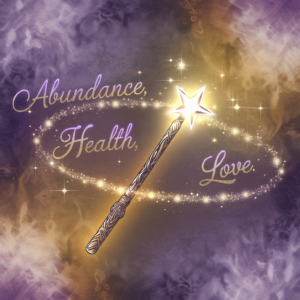We live in three worlds: First, the world of relations, a world of living and dead things, men and their works, and the ideas and purposes of others.
Second, the world of personal life; a world of the body with its organs, its warmth, its hungers, gratifications and satisfactions, pains and intimate necessities ; the world of our conscious experiences, feelings, desires, hopes, fears, plans, memories, loves and hatreds; the world of “I” which is aware of its relation to the outer world.
Third, a world of the absolute:—the little known world of eternal, ageless Being; the occasionally glimpsed absolute knowledge of the relations and conditions of existence, the divine nature, the Kingdom of God within.
We live in the first two worlds as if they were the whole of our habitation, as if the causes and effects of life were in them. There is no cause in either the outside or the personal worlds. All cause is in the world of Being. All knowledge comes from the ‘absolute consciousness and in the absolute ail is known.
There are many ways by which the innermost kingdom may be approached.
All power comes from the absolute self and in the absolute there is all power. The personal man stands midway between the absolute and the relative. In him the realm of principle, cause, purpose, and creation unites with the realm of effect, the physical world of dynamic interacting things.
In the pre-human ancestors of man, through countless ages, the realm of cause developed the physical organism and means for discovering its relations to the outside world and organs for the achievement of its purposes in expression. In man the brain development allows the consciousness of environment to be supplemented with self consciousness and in exceptional men, with the consciousness of the third realm, the realm of the absolute.
The eternally unfolding purpose of the Infinite is becoming conscious of itself in man. Through countless ages Life was striving for a consciousness of its relations to its surroundings. No doubt an occasional creature was more or less conscious of the world it lived in through age after age before even the highest types of living things became generally conscious of that world.
Through age after age an occasional man has been conscious of himself as a person in a world of things and while mankind generally is now self-conscious, there are still some men who are only slightly conscious of their personal lives. We are now in that stage of development in which only an occasional man becomes conscious of the realm of cause, “The Kingdom of God.” The time will come when mankind will be as generally conscious of the realm of cause as he is now conscious of the realm of his personal life and experience.
Life becomes conscious of the surrounding world through the sense-organs which respond to the energies and the conditions of that world. He looks outside to discover the world in which he lives. He becomes conscious of himself by turning these same sense-organs upon himself and by considering the experiences that develop upon these sensations. He even discovers a flow from the unknown inner self into the self conscious personal self. He looks within to find himself.
Those who have found the Kingdom of God, the realm of cause, have found it because they were able to look into the most profound depths of their inner selves. There are many ways by which the innermost kingdom may be approached.
Some appear to be born with a slight degree of consciousness of it in their native self-confidence, their assumption of power to do what they desire to do. If they are fortunate in having parents, teachers, and friends, and in being so situated, that circumstances do not rob them of this realisation, they may go through life blessed by the power that such realisation gives. Others by study and training may achieve some degree of realisation. The third way is open to a few more. By shutting themselves away from the world and its claims upon their attention and then transcending their interest in themselves, they may become conscious of the realm of cause and principle and more or less capable of dealing with all things and events from this basis.
These states of abstraction from the surrounding world and the personal self with awakening consciousness of the realm of principle, are familiarly known as “trance.” Some persons spontaneously enter the trance states but some method of induction must be used with most persons to whom trance is possible. There are many methods for inducing trance but all have essentially the same object:—The induction of a bodily sleep with the awakening of the powers of inner vision which are just dawning in the human consciousness, while maintaining the conscious use of the brain speech centres and motor apparatus. When deep trance is attained one is conscious in the realm of principle, cause, and divine purpose. If religious longing, desire and aspiration have supplied the motive for the induction of trance and the mind is free from dominating prepossessions of credal superstition, the wisdom of divine purpose then becomes known and the neophyte is for the time a conscious dweller in the Kingdom of God.




